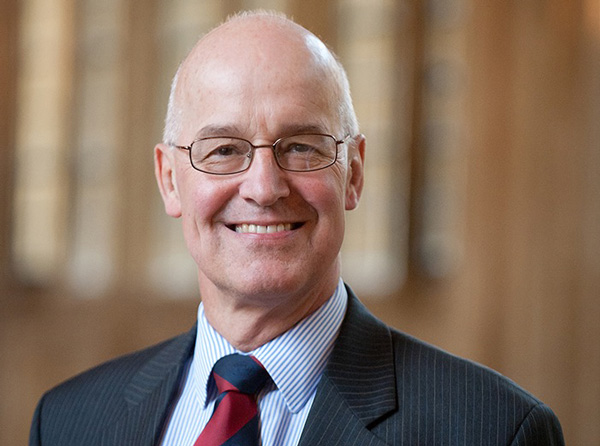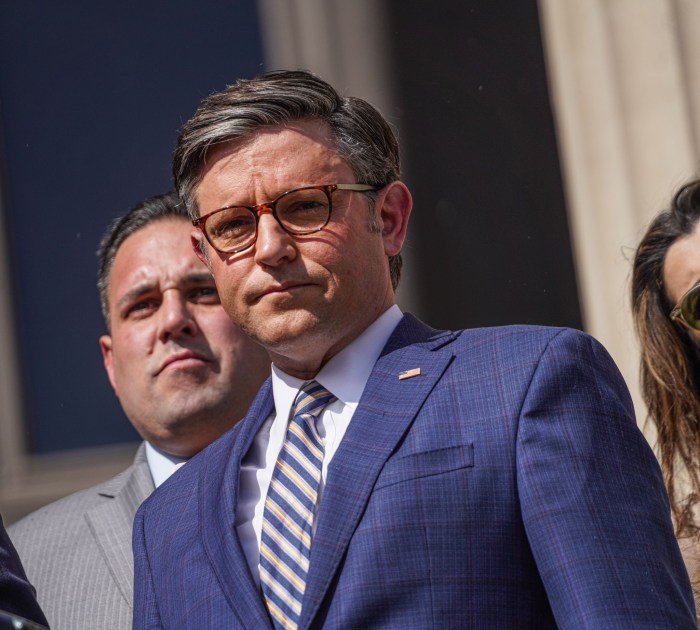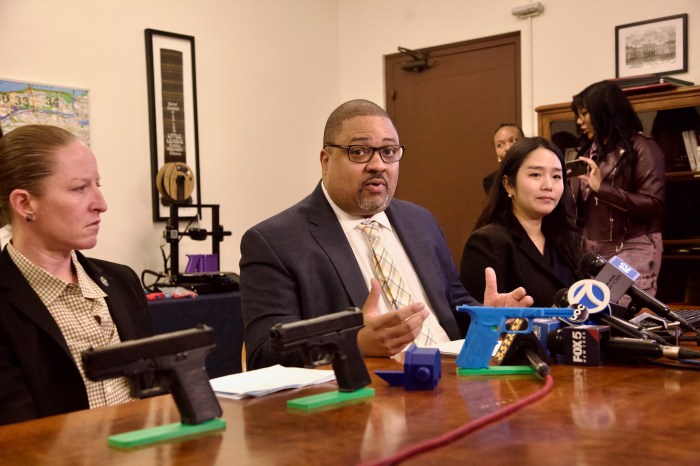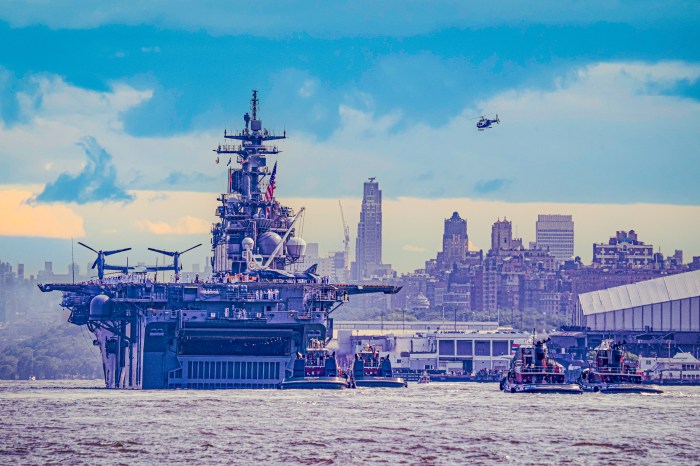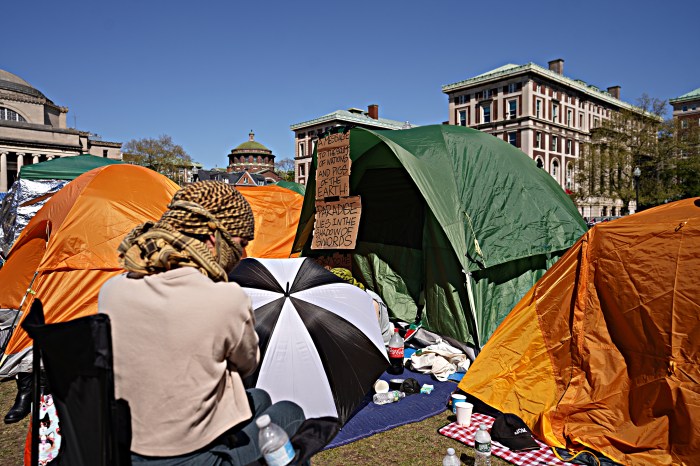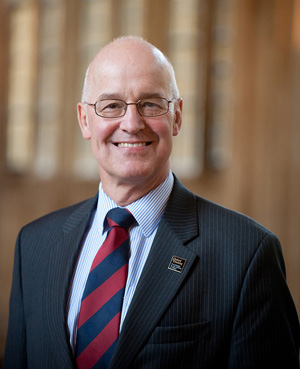
BY LINCOLN ANDERSON | The N.Y.U. board of trustees on Tuesday announced the appointment of Andrew Hamilton, the current vice chancellor and senior officer of the University of Oxford, as the 16th president of New York University.
The British-born Hamilton is a noted chemist and was formerly the provost of Yale University. He will officially take up his duties at N.Y.U. in January 2016.
Professor Hamilton’s selection follows an eight-month, international search process conducted by a search committee of trustees, faculty, students and administrators. The Committee — which began the search with over 200 nominees — unanimously recommended Hamilton to the board of trustees.
Hamilton will preside over the largest private university in the U.S., with roughly 50,000 undergraduate, graduate and professional students.
In addition to its “campus core” in Greenwich Village — where the university has had a presence since the early 1830s — N.Y.U. has recently been building up a network of global campuses including in Abu Dhabi and Shanghai, as well as 11 additional “study-away” sites throughout the world. According to the university, N.Y.U. both educates more international students than any other U.S. college or university, and sends more students to study abroad.
In addition to his duties as president, Hamilton plans to actively teach and do research.
Martin Lipton, chairperson of the board of trustees said, “New York University is very pleased and excited to welcome Andrew Hamilton. N.Y.U. — which has done so much over the previous four decades to transform itself into the world-class university it is today and remains committed to sustaining that academic trajectory — demands much of a potential president: wisdom, intelligence, courage, energy, perseverance, stellar credentials as a scholar, and academic leadership of the highest caliber. Andrew Hamilton brings all these qualities and more. We know he will be a superb president and that he will advance N.Y.U.’s teaching and research missions to a new level of excellence. My fellow board members and I are completely confident we have found the right person to lead N.Y.U. and its global network, and we are proud and glad to have him join our community.
William Berkley, chairperson of the search committee and chairperson-designate of the board of trustees, said, “What focused us on Andrew Hamilton and set him apart from a formidable field of candidates was the unusual combination of his outstanding scholarship in his field, his record of achievement in leadership posts at top universities, his commitment to academic excellence and support for the faculty, his commitment to teaching and undergraduate education, his accomplishments in fundraising at Oxford, and his global background and outlook.
“We were also struck by his great intelligence, personal warmth, energy and entrepreneurial spirit, and natural feel for complex institutions. … And it was clear to us that he understood N.Y.U. — our urban character, our distinctive global presence, our vibrancy, our focus on the future, our innovative spirit, our sense of being on the move and our habit of exceeding others’ expectations.
Hamilton said, “I am delighted to be selected as N.Y.U.’s 16th president. I have been a keen observer of N.Y.U., its accomplishments, its trajectory and its renowned president, John Sexton, for some time. It is difficult not to take notice of an institution that has proven itself again and again to be a game-changer in a field in which that is uncommon. I am looking forward with great eagerness to working with N.Y.U.’s faculty, students, administrators and staff, and to joining a university that is so manifestly energetic, innovative and successful.”
Hamilton has been vice chancellor of Oxford since 2009. Prior to that, he was the provost of Yale, where he was also the Benjamin Silliman Professor of Chemistry and Professor of Molecular Biophysics and Biochemistry; he joined the Yale faculty in 1997. He joined the University of Pittsburgh in 1988, where was a tenured professor of chemistry and chairperson of the chemistry department. Before joining the faculty at Pittsburgh, he was an assistant professor of chemistry at Princeton University.
His area of scholarly interest lies at the intersection of organic and biologic chemistry, with a focus on the use of synthetic design for the understanding, mimicry and potential disruption of biological processes. He is widely published and the recipient of numerous awards and honors.
Among his many honors and awards, he is the recipient of the Arthur C. Cope Scholar Award from the American Chemical Society. He was elected a fellow of the Royal Society in 2004, and was also elected a member of American Academy of Arts and Sciences.
Hamilton received a first-class bachelor’s of science degree from the University of Exeter, his master’s degree from the University of British Columbia and his doctorate from the University of Cambridge. He did post-doctoral work at the Université Louis Pasteur.
Hamilton is married. He and his wife, Jennie, have three adult children who all live in the U.S. — in New York, Washington D.C., and Los Angeles.
N.Y.U. President John Sexton said, “I love N.Y.U., and I could not be more thrilled with the selection of Andrew Hamilton. I know and admire him, and I am certain he will do great things for the university. For my own part, I have had no higher calling in my life than to be a teacher and to contribute to building strong institutions. For nearly 35 years, I have had the exceptional privilege of being able to do both those things at N.Y.U.”
Sexton served as the dean of N.Y.U. School of Law from 1988 until becoming the university’s president in 2002.
“That N.Y.U. could attract an academic leader of Andrew Hamilton’s stature is proof of how far N.Y.U. has come,” Lipton said. “Many people had a hand in building this great university over the decades, but arguably none more so than John Sexton. Doubling the applicants for freshman admission, more than doubling the financial aid budget, improving student diversity, expanding the tenured and tenure-track faculty, launching new areas of scholarly inquiry, growing our international stature, opening new campuses abroad, raising some $5 billion, and tripling the endowment — it seems hard to believe all this and more was accomplished in just a single presidency. For his more than 30 years of distinguished and dedicated service to this university, he has the unflagging thanks of the N.Y.U. community.”
As Sexton’s tenure is ending, however, the community is still waging its all-out legal battle against the university’s mega-development plan for its two South Village superblocks. Under the plan, N.Y.U. hopes to add four new buildings with 2 million square feet on the two blocks, which are bounded by W. Houston and W. Third Sts. and Mercer St. and LaGuardia Place. The Court of Appeals — the state’s highest court — recently agreed to hear the community plaintiffs’ appeal. N.Y.U. and the city had won at the Appellate Division, overturning a ruling at the State Supreme Court that would have blocked two and possibly three of the buildings from being constructed.
The plaintiffs — a broad-based coalition of N.Y.U. faculty, community and activist groups and local residents — argue that the “open-space strips” of parkland along the superblocks’ western and eastern edges cannot be used for the project in any way unless they are formally “alienated” — removed as parkland — by the state Legislature. The decision on the case will have far-reaching ramifications for the fate of public parkland all over New York State, the plaintiffs warn.
The case will be argued this spring. The N.Y.U. administration has reportedly been telling employees at the school’s Coles Sports Center that a ruling may not come down until October. Under the university plan, N.Y.U. would raze Coles for a new multiuse “Zipper Building” that would be 300 feet tall at its highest point and also include a new sports gym.
Andrew Berman, executive director of the Greenwich Village Society for Historic Preservation, said, “Relations between New York University and its neighbors, as well as many of its faculty and staff, have reached an all-time low in recent years, largely due to the university’s unrelenting drive to physically expand in Greenwich Village without regard for the concerns of neighbors. We can only hope that Mr. Hamilton will do a better job of listening to his neighbors than President Sexton, and of thinking about ways to address the university’s desire to grow while also respecting the limitations of the historic, humanly scaled residential neighborhood in which it is located.
“We consider N.Y.U. a valued part of this neighborhood; we simply do not want to be overwhelmed, swallowed up or dismissed by it. We welcome the opportunity to work with the new president, and we hope he will feel similarly. But ultimately it will be Mr. Hamilton and the university’s actions that determine how that relationship will work.”
G.V.S.H.P. is a plaintiff on the lawsuit against the N.Y.U. 2031 expansion plan.
State Senator Brad Hoylman said, “I congratulate Dr. Andrew Hamilton on his appointment as the new president of N.Y.U. and look forward to meeting and working with him on the steep challenges ahead, including ensuring that the university’s expansion plans don’t harm the historic character of Greenwich Village. Dr. Hamilton’s broad experience in dense urban academic settings like New Haven and Oxford should serve him well in establishing good relations with the local neighborhood, and I sincerely pledge to help him in this regard.”



